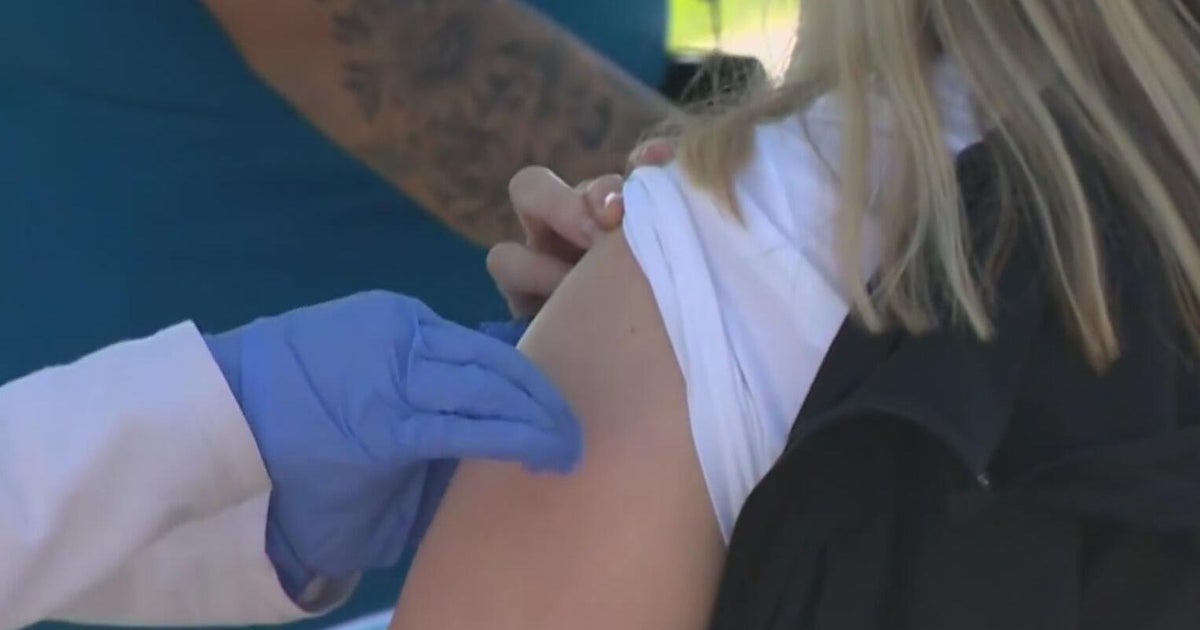Remote voting gains traction in Senate after House coronavirus diagnoses
Washington — The coronavirus reached the halls of Congress this week after two members of the House of Representatives tested positive for the illness, prompting lawmakers to rethink how they approach voting in the House and Senate.
Members of the House, where they are in recess, plan to remain away from the U.S. Capitol until they're needed to vote on a third stimulus package to address the economic impacts of the coronavirus. In the meantime, on a leadership call Thursday, House Rules Committee Chairman Jim McGovern, a Massachusetts Democrat, said he would be conducting a study on the feasibility of remote voting for lawmakers, according to a congressional aide.
In the Senate, where negotiations are taking place in Washington, a proposal to allow for remote voting is gaining traction. Senators Dick Durbin, a Democrat from Illinois, and Rob Portman, a Republican from Ohio, introduced a resolution Thursday to amend Senate rules to allow members to cast their votes remotely during a national crisis. The remote voting would be permitted for a 30-day period and could be renewed with Senate approval.
"We live in an age where national emergencies, public health crises, and terrorism can threaten the ordinary course of Senate business," Durbin, the No. 2 Senate Democrat, said in a statement. "We need to bring voting in the Senate into the 21st century so that our important work can continue even under extraordinary circumstances. Bob Dylan was right: 'the times they are a-changin.'"
Other Senate Republicans appear to be on board with leveraging technology to allow Senate business to continue away from Washington, especially as federal health officials urge Americans to limit their social interactions to minimize the spread of the coronavirus.
"I certainly hope that the leaders of both chambers are developing plans to do telework," Missouri Senator Josh Hawley told reporters. "Listen, Congress can't shut down in the middle of a national emergency, but it probably is not good to have gobs of staff and reporters."
Senators, he said, are "going to have to put ourselves onto different footing, so hopefully that's coming really quick."
GOP Senator Lindsey Graham of South Carolina, a close ally of President Trump's, called the notion of voting remotely "a good idea."
"We just got to keep functioning," he told reporters. "We have to adjust."
Senator Marsha Blaackburn, a Republican from Tennessee, said discussions about working remotely are "appropriate," while Senator Kevin Cramer, a Republican from North Dakota, told reporters he was "anxious today to see if there's been any movement on that possibility."
"I don't know how you can have two members of Congress as far apart as Utah and Florida have the virus and not be seriously considering that type of arrangement," he said.
Joining senators in supporting a plan to allow for remote voting is Democratic Senator Amy Klobuchar of Minnesota, the top Democrat on the Senate Rules Committee.
"The Senate must do its job to protect the American people from the health and economic impacts of this pandemic. That means we need updated emergency plans including remote Senate voting to ensure that we can pass legislation during any crisis," she said . "As ranking member of the Rules Committee, I commend Senators Durbin and Portman for their work on this proposal, and I will continue working with them to pass their bill to ensure our continuity plans address the reality of new threats."
But the plan is facing opposition from Senator Roy Blunt, a Republican from Missouri and the chairman of the Rules panel, and Senate Majority Leader Mitch McConnell, who are splitting from rank-and-file members.
"Not gonna happen," Blunt said. "The speaker doesn't want to do it, the leader doesn't want it to do it. It's not going to happen."
During a press conference Tuesday, McConnell told reporters that senators would adapt to new guidelines for dealing with the coronavirus "without fundamentally changing the Senate rules."
On Wednesday, Congressmen Mario Diaz-Balart, a Republican from Florida, and Ben McAdams, a Democrat from Utah, revealed they tested positive for the coronavirus after developing symptoms late last week, becoming the first two cases of the coronavirus among members of Congress.
Both were last seen in the Capitol on Friday, when the House voted on a coronavirus relief package, and have been in self-quarantine.
In the wake of their diagnoses, more than a dozen other members have announced their decisions to quarantine themselves after discovering they had been in contact with Diaz-Balart or McAdams. That group joins other lawmakers who previously self-quarantined after early contacts with others who tested positive, including an attendee at this year's Conservative Political Action Conference.
A number of lawmakers have also closed their offices and instructed staff to telework after an aide to Senator Maria Cantwell, a Democrat from Washington, tested positive for the coronavirus.
The U.S. Capitol and surrounding House and Senate office buildings, meanwhile, are closed to the public indefinitely.
Kimberly Brown contributed to this report.



